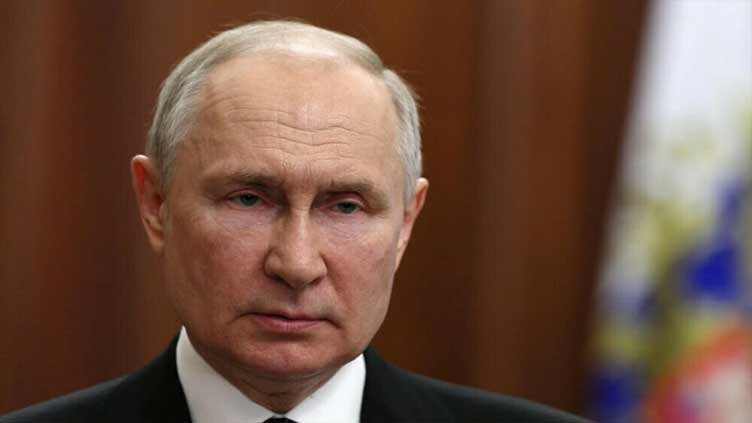Russia's Putin to stay in power past 2024, sources say

World
A choreographed hint is due to come within a few weeks
MOSCOW (Reuters) - Vladimir Putin has decided to run in the March presidential election, a move that will keep him in power until least 2030, as the Kremlin chief feels he must steer Russia through the most perilous period in decades, six sources told Reuters.
Putin, who was handed the presidency by Boris Yeltsin on the last day of 1999, has already served as president for longer than any other Russian ruler since Josef Stalin, beating even Leonid Brezhnev’s 18-year tenure.
Putin turned 71 on Oct. 7.
The sources, who spoke to Reuters on condition of anonymity due to the sensitivity of Kremlin politics, said that news of Putin’s decision had trickled down and that advisers were now preparing for the campaign and a Putin election.
For Putin, who opinion polls show enjoys approval ratings of 80% inside Russia, the election is a formality if he runs: with the support of the state, the state media and almost no mainstream public dissent, he is certain to win.
“The decision has been made - he will run,” said one of the sources who has knowledge of planning.
A choreographed hint is due to come within a few weeks, another source said, confirming a Kommersant newspaper report last month. Another source, also acquainted with the Kremlin’s thinking, confirmed that a decision had been made and that Putin’s advisers were preparing for Putin’s participation.
Three other sources said the decision had been made: Putin will run. “The world we look out upon is very dangerous,” said one of the sources. A foreign diplomatic source, who also requested anonymity, said Putin made the decision recently and that the announcement would come soon.
While many foreign diplomats, spies and officials say they expect Putin to stay in power for life, there has until now been no specific confirmation of his plans to run in the March 2024 presidential election.
Kremlin spokesman Dmitry Peskov declined to comment. Peskov said in September that if Putin decided to run, then no one would be able to compete with him.
The Kremlin has dismissed reports that Putin was unwell as disinformation spread by the West.
Russia at war
While Putin may face no real competition in the election, the former KGB spy faces the most serious set of challenges any Kremlin chief has faced since Mikhail Gorbachev grappled with the crumbling Soviet Union more than three decades ago.
The war in Ukraine has triggered the biggest confrontation with the West since the 1962 Cuban Missile Crisis; Western sanctions have delivered the biggest external shock to the Russian economy in decades; and Putin faced a failed mutiny by Russia’s most powerful mercenary, Yevgeny Prigozhin, in June.
Prigozhin was killed in a plane crash two months to the day after the mutiny.
The West casts Putin as a war criminal and a dictator who has led Russia into an imperial-style land grab that has weakened Russia and forged Ukrainian statehood while uniting the West and handing NATO a mission.
Putin, though, presents the war as part of a much broader struggle with the United States which the Kremlin elite says aims to cleave Russia apart, grab its vast natural resources and then turn to settling scores with China.
“Russia is facing the combined might of the West so major change would not be expedient,” one of the sources said. Russian weapons production is soaring. Russia forecasts its $2.1 trillion economy will grow faster this year than the European Union.
The price of Urals crude oil, the lifeblood of Russia’s economy, averaged $81.52 per barrel in October.
Tightening screws
For some Russians, though, the war has shown the faultlines of post-Soviet Russia.
Jailed Russian opposition politician Alexei Navalny says Putin has led Russia down a strategic dead end towards ruin, building a brittle system of corrupt sycophants that will ultimately bequeath chaos rather than stability.
“Russia is going backwards,” Oleg Orlov, one of Russia’s most respected human rights campaigners, told Reuters in July.
“We left Communist totalitarianism but now have returned to a different kind of totalitarianism.” Several hundred thousand Russian and Ukrainian soldiers are estimated to have been killed or wounded in just over a year and half of war, far more than the Soviet official casualties in the entire 1979-1989 war in Afghanistan.
Before his mutiny, Prigozhin castigated Putin’s generals for the war and what he cast as its incompetent execution and warned that Russia could face revolution unless the elite got serious.
“This divide can end as in 1917 with a revolution,” Prigozhin said one month before his mutiny.


